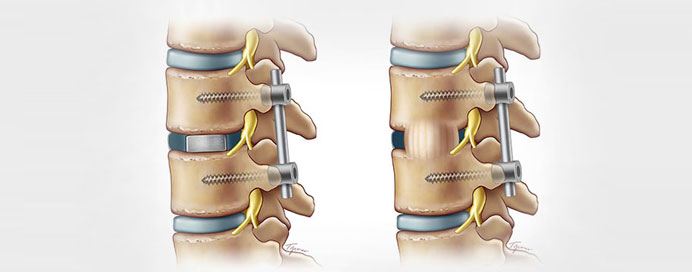Services / Dr. Ravi Bhanushali

Spinal fusion surgery is a common orthopedic procedure performed by orthopedic surgeons or neurosurgeons. This surgery is used to treat various spinal conditions that involve instability, degeneration, deformities, or other issues that may cause pain or neurological symptoms.
Here’s an overview of spine fusion surgery as a part of orthopedic services:
Individuals considering spinal fusion surgery should have a thorough discussion with their orthopedic surgeon to understand the potential benefits, risks, and expected outcomes based on their specific condition. The decision to undergo spinal fusion is individualized, and healthcare providers take into account various factors to create a treatment plan tailored to the patient’s needs.
